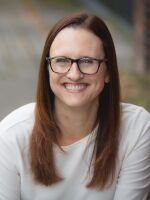Thousands of public school students across Washington state are being monitored 24 hours a day on their school-issued laptops.
School districts from Vancouver to the San Juan Islands, and Bellevue to Richland, have hired a private company to monitor everything students write in an effort to prevent them from hurting themselves or others.
The Seattle Times and The Associated Press recently published an investigative story that takes a hard look at how this technology is being used and the impacts it's having on the lives of young people, parents and teachers.
Seattle Times Education reporter Claire Bryan joined KNKX Morning Edition host Kirsten Kendrick to explain more.
Click “Listen” above to hear their conversation, or find the transcript below.
Transcript
Note: This transcript is provided for reference only and may contain typos. Please confirm accuracy before quoting.
KNKX Morning Edition host Kirsten Kendrick: Claire, welcome.
Seattle Times Education reporter Claire Bryan: Thanks. It's good to be here.
Kendrick: Now the surveillance software that you and your colleague Sharon Lurye from The Associated Press reported on, is called Gaggle Safety Management, and the school district you focused on is Vancouver Public Schools in southwest Washington. So how does this monitoring work?
Bryan: Yeah, so school districts partner with a company like Gaggle, and they install this software, that goes on every single student device. So that's usually a laptop. In some school districts, it might be an iPad or a Chromebook. And essentially, anything the student types, whether they're at school or at home, will be monitored by an AI-powered software that is looking for words that trigger violence, possibly self harm to a student, or the school community safety. The software, once it finds something that it thinks might be harmful, it notifies the school district administrators. And from there, the principal or the school counselor can decide what to do next, to contact the parent, to talk to the student and go from there,
Kendrick: Did you uncover any privacy violations in Vancouver Public Schools?
Bryan: Yes. So when I filed records requests for information about what type of content triggers this software to notify the school district, what got shared with me was not password protected. It was not encrypted. It also didn't redact the student names, which is a violation of federal student privacy law. And after we discovered this, they have changed their policy so that after 72 hours, that link gets locked down by a password login portal that the school districts have to type in. But they feel like within those 72 hours, those links need to not be under a portal, because sometimes school administrators are accessing this late at night, in the middle of the night, on their phone. If it's really, you know, a case of a student harming themselves or taking their life, they want school administrators to be able to respond as quick as possible.
Kendrick: When you and your colleague, Sharon from the AP, saw all these messages from students. What surprised you the most?
Bryan: What we saw in thousands and thousands of documents was that kids are really disclosing a lot of private information. So they're talking about their breakup or their relationship with their peers, or they're emailing their teacher, saying, 'hey, my father at home is being abusive.' And they're just using that laptop as a place to write and think and reflect. And it is really personal, it's not just their schoolwork.
Kendrick: Are there any examples of this type of alerting actually working in Washington state?
Bryan: Definitely. I spoke with someone who used to be the superintendent at Highline Public Schools. Highline Public Schools actually no longer uses Gaggle, but they did for quite a few years, and she shared with me that there was a student who she believes was being human trafficked, and the student was pretty shy, but she was actually aware that officials were watching her computer, and so she used that computer to type things and share what was going on in her situation, and actually was able to get herself resources from what she shared.
Kendrick: Well, the question that many parents hearing this might have now is, how can they find out if their child is being watched online by a company like Gaggle?
Bryan: So all of those forms that you sign at the very beginning of the year as a parent would be the first place to look usually, it's called a "responsible use form," and it will usually have a small line in there that says that the school district's allowed to monitor the device. It's not usually in very clear or bold language. So you might as a parent, want to contact the school district directly and ask, and then you can look up some more information about that company.
Kendrick: All right. Well, Claire, thank you so much for coming in to talk about your reporting.
Bryan: Yeah, thanks for having me.
Kendrick: Claire Brian is an education reporter with The Seattle Times. Her story is the first of a series that's part of the Education Lab collaborative.







